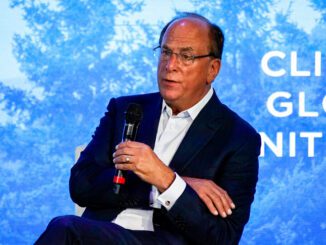
This past week, California regulators shut down Silicon Valley Bank (SVB), making it the second-largest bank failure in American history. As the securities regulators investigate the cause, many investors have pointed to a shift to pursuing Environmental, Social and Corporate Governance (ESG) policies.
This historic shutdown has sparked debate about the profitability and effectiveness of ESG policies nationwide — and with good reason. When asset managers reduce the options available for investment in order to prioritize issues such as climate change over maximizing shareholder values, the impact is likely lower returns for the future retiree.
In wake of the collapse, politicians and the media have criticized the bank’s loans to ESG-related companies as well as its in-house ESG policies. Rep. James Comer (R-KY), chairman of the House Oversight Committee, said of SVB: “They were one of the most woke banks in their quest for the ESG-type policy and investing.”
On March 1, the U.S. Senate joined the U.S. House of Representatives in voting to overturn a Biden administration then-month-old-rule permitting private fiduciary retirement managers to “consider” ESG factors in Americans’ retirement plans. Translation: money managers will be forced to make investment decisions based on climate change and other “woke” policies.
Although Biden has said “the federal government should not restrict that choice for plan managers,” the reality is the rule itself is a de facto reduction in the companies that could attract investment. Biden subsequently vetoed the bill, the first since he took office in January 2021.
The Labor Department rule as written undermines 401(k) retirement funds by enabling investment managers to prioritize ideological issues like climate change over investment returns. Rep. Andy Barr (R-KY), who spearheaded the effort to overturn the proposal, claimed “Americans don’t want their retirement politicized. They don’t want politics as part of their retirement portfolio. They want financial performance; they want investment returns.”
With the market volatility and investors staring at weak 401(k)s, you would think Biden would want to do whatever he can to help returns, not make it tougher for investors to earn a buck.
ESG discussions may be flooding headlines today, but they aren’t new.
For the past several years, large investment firms like BlackRock have pursued a new, “enlightened” investment approach with climate change at the helm. BlackRock CEO Larry Fink even suggested it would become a “defining factor in the companies’ long-term prospects.”
But as Americans have faced record-high inflation and other economic hardships, firefighters, police officers, teachers and government employees want confidence that their money managers are acting in their best interest, not trying to whitewash woke ESG policies that prioritize people over profits.
Last year, state treasurers and legislatures better aligned pension fund investments with their states’ economic interests. In August, for example, Texas Comptroller Glenn Heger announced he would seek to divest holdings in BlackRock after determining they were boycotting energy companies. In similar fashion, South Carolina, Utah and Louisiana state leaders announced they would divest more than $200 million, $100 million and $800 million, respectively, in BlackRock holdings by the end of 2022. And North Carolina’s Dale Folwell even called for Fink’s ouster.
It seems Fink heard their message loud and clear. In his annual shareholder letter sent earlier this week, there was noticeably one thing missing: ESG.
Certain state treasurers are recognizing that it’s time we get back to the basics of providing Americans the best returns for their hard-earned money. Americans are counting on our money managers following suit.
Jill Homan is a mom of two, lives in Johnston County, and runs a real estate investment and advisory firm focused on investing in low-income communities.



